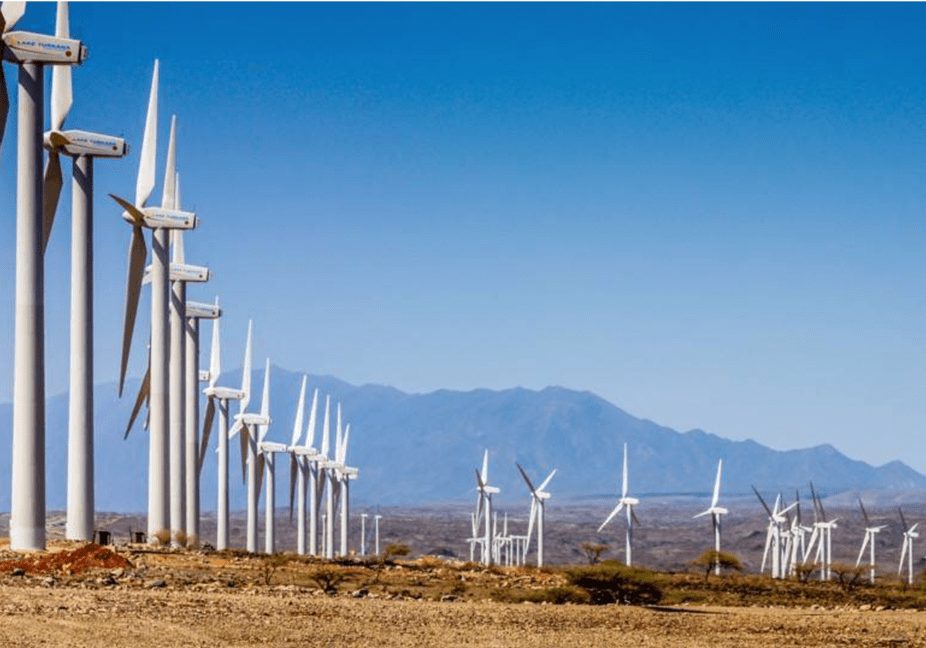Google May Have Pulled Out Of The Lake Turkana Project For More Than Just Delays

Google has cancelled its plans to buy a 12.5 percent stake in Africa’s largest wind project. The Lake Turkana Wind Farm which is located in the Marsabit County of Kenya, was reportedly due for completion in 2017, 3 years after construction started.
There has past been reports of the project being commissioned as a 310 MW unit of 365 wind turbines sitting on sits on a 70,000 hectares land stretch. In the midst of much fanfare about the cleantech, Google indicated interest in having a stake in the project.
Google In Renewable
Google is the largest buyer of renewable energy in the world. The American tech company has 18 separate agreements to supply it with electricity from wind and solar projects across the world.
The firm’s renewable energy fleet now stands at 52 projects, driving more than USD 7 Bn in new construction and thousands of related jobs. It is working to make clean energy mainstream and break down the barriers for those who want to purchase renewable energy.
For a firm of such caliber and interest in cleantech to go hands-off on what is Africa’s largest wind farm sends mixed signals. Asides from leaving Vestas – the owner of the project – shopping for another buyer, the decision leaves many wondering if Google will ever be financially involved in African renewables.
Dipped In Bad Ink?
A report by The Conversation shows that the Lake Turkana Wind Farm may not be a great renewable development all the way. The September 2019 investigation reveals that the project may be sitting on illegally leased land.
The research also pointed out that the wind farm is infringing the rights of nearby communities, even as these areas will not electrically benefit from the project.
“For people living on Kenya’s resource frontiers, the drive for national development is often a process of exclusion rather than inclusion, the report read.
This could be another compelling reason the company decided to not participated as planned. An initiative reportedly doing more harm than good to communal Kenya may not be something Google wants to soiled its hands with.
In as much as the project has been lauded as Africa’s largest wind farm, it’s possible the tech giant would want to invest in a project more straightforward and free of criticism.
Transmission

According to Reuters, a Vestas spokesperson said Google dropped the plans due to delays mainly associated with the transmission line. Apparently, the cancellation happened in 2019, after which Vestas started searching for other potential investors.
The communications arm declined to respond to WeeTracker’s questions on the matter, but there could be a bigger picture in Google’s sudden disinterestedness in the project.
Since 2016, Google has been upfront with its plans to unify the world’s Wi-Fi hotspots with Google Station. Today, the company has wireless fidelity hubs in Mexico, Indonesia, Thailand, Brazil and India. More importantly, there are Google Stations in Nigeria and South Africa.
According to this map, the Abuja arm of the service is still functional. Nevertheless, Google Station in Lagos has been offline and there’s no update as to fixing it.
Going Forwards
Google would also not comment on whether it is going to invest in another African renewable project after the Lake Turkana Wind Farm, but there’s much reason to believe it will.
Stand-alone solar PV mini-grids have installed costs in Africa as low as USD 1.90 per watt for systems larger than 200 kilowatt. Solar home systems provide the annual electricity needs of off-grid households for as little as USD 56 per year. This is arguably less than the average price for poor quality energy services.
Lake Turkana project is Kenya’s largest private sector initiative, which adds to the East African country’s title as a green energy mover. According to the World Bank’s estimates, the sector in Africa will see sales worth USD 8 Bn by 2022.
This articles has been reviewed to show why delay problems could be only one of the reasons Google is pulling out of the project.